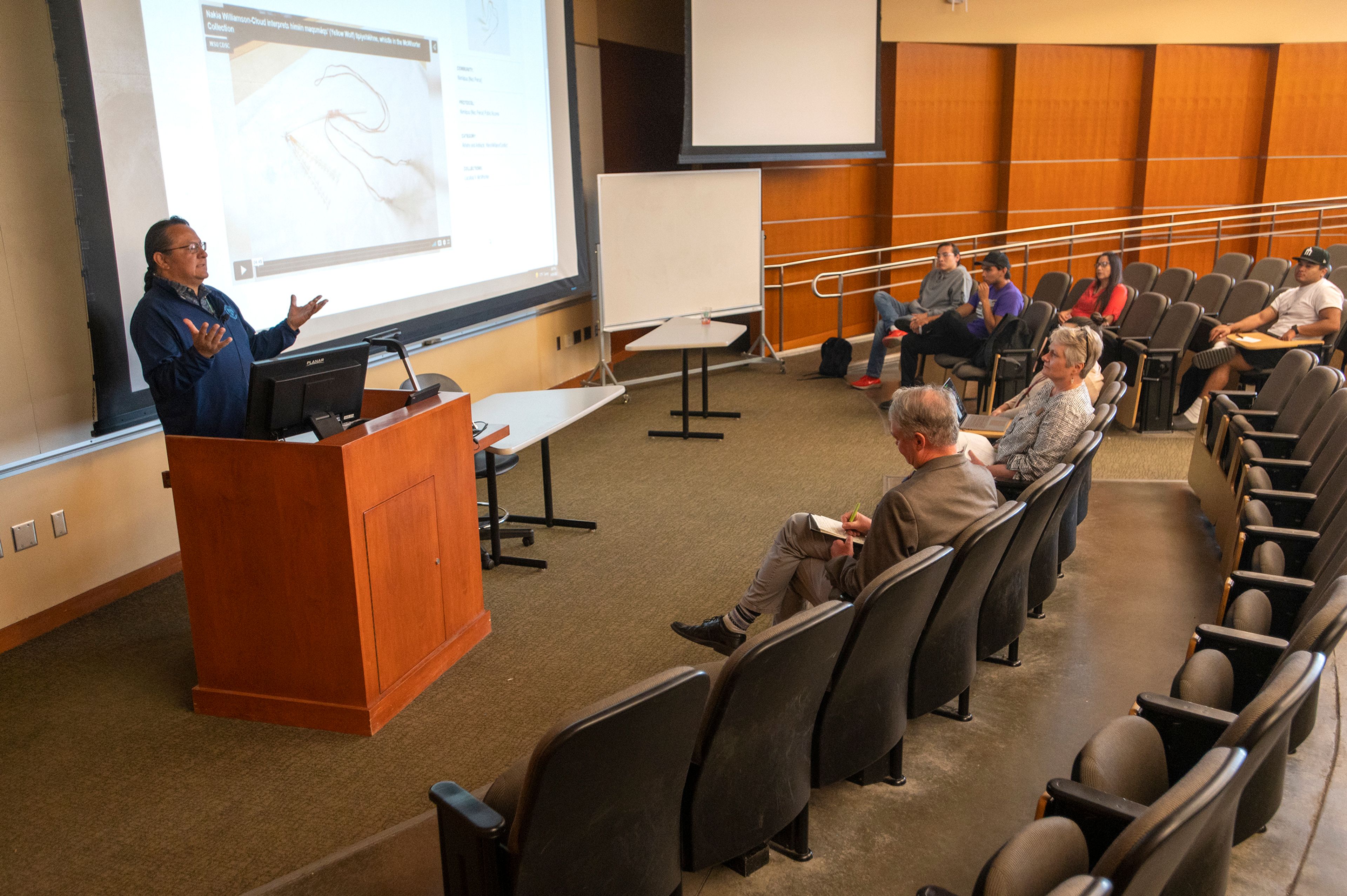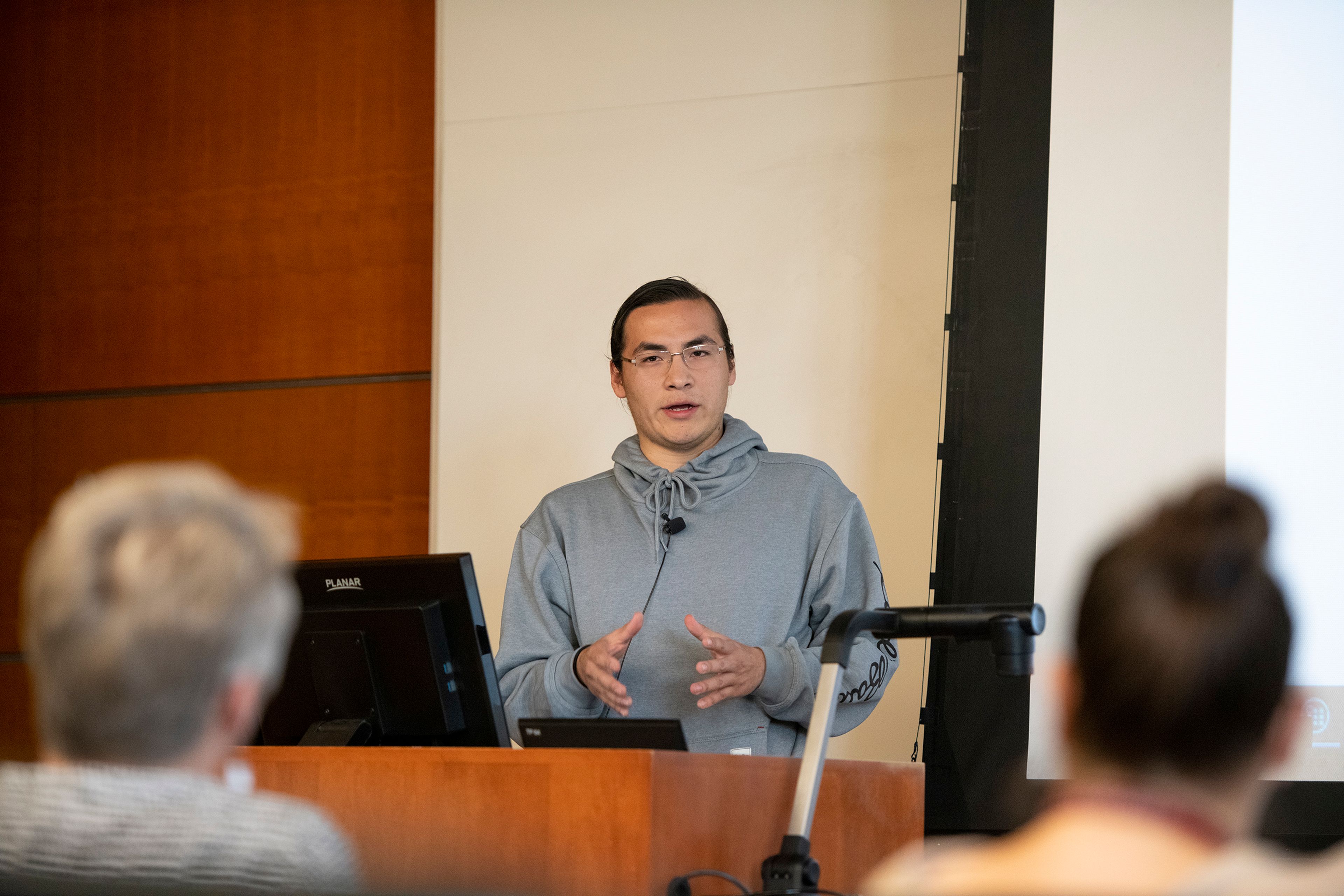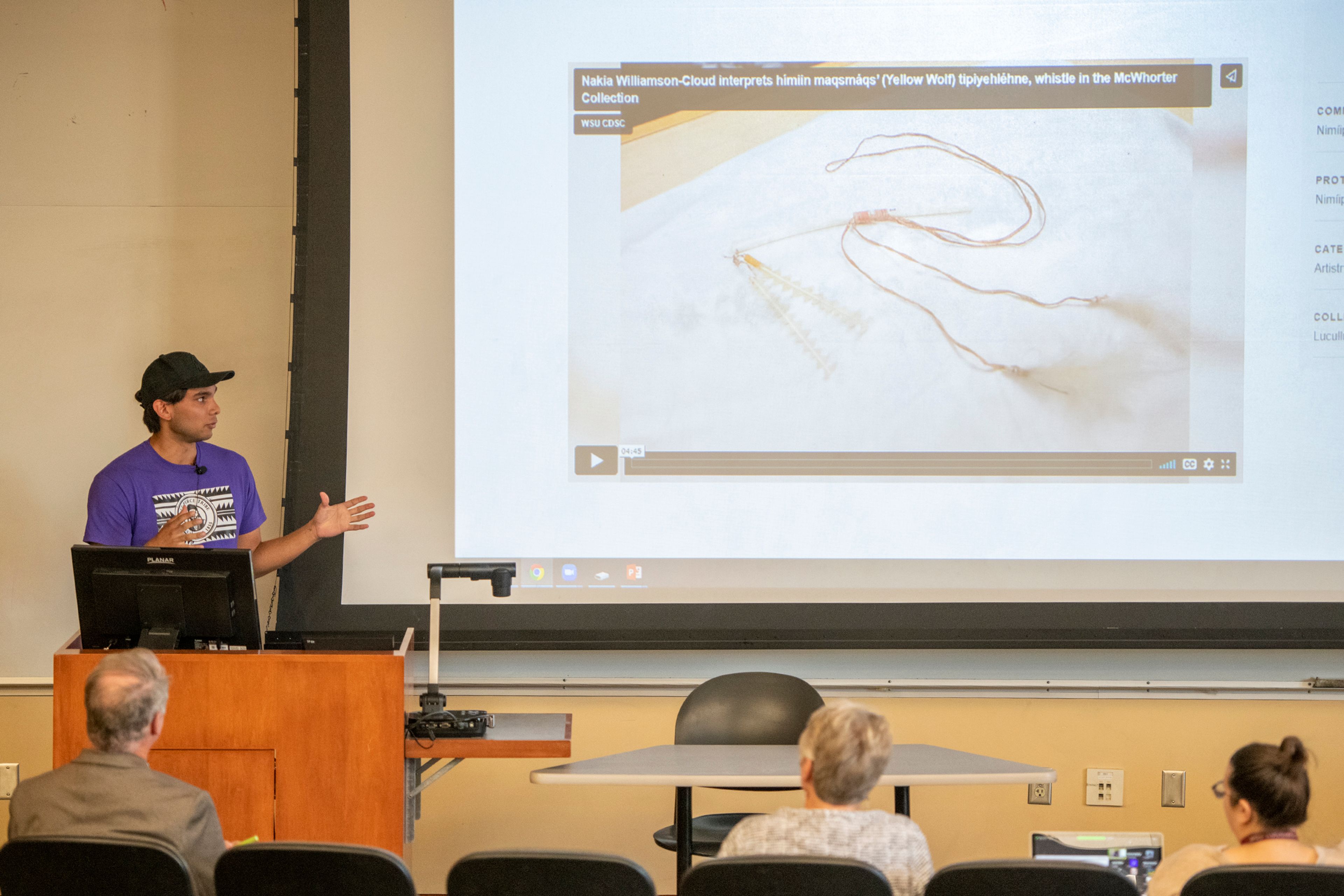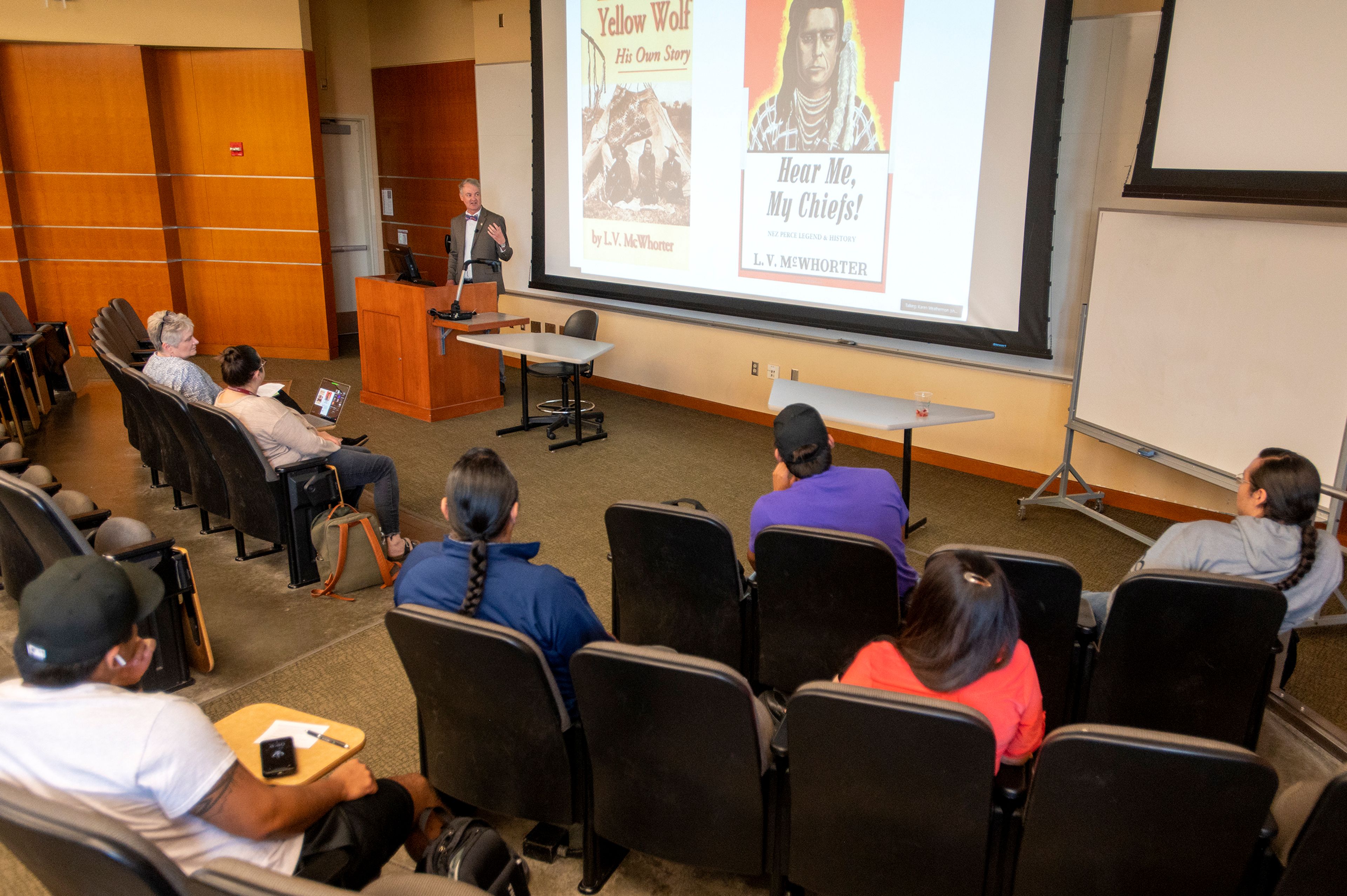Exploring what it truly means to be Nimiipuu
Nez Perce Cultural Resources Program partners with WSU to showcase a collection of materials associated with the 1877 Nez Perce War
Nimiipuu: It’s not just a name, a title or something that appears on paper, Nakia Williamson-Cloud said. It’s a life people carry that’s connected to this land and a big part of who the Nez Perce people are.
The Nez Perce Cultural Resources Program collaborated Tuesday with Washington State University to show materials associated with the 1877 Nez Perce War as a part of the WSU Common Reading Program. “Sharing Nimiipuu Traditional Knowledge on the Plateau Peoples’ Web Portal”: led by Williamson-Cloud, Nez Perce Tribe Cultural Resources Program director, presented significant artifacts from Nimiipuu, or the Nez Perce Tribe, along with videos created to help share the culture meaning of these objects.
WSU has the unique privilege of viewing a collection of items from the Nez Perce tribe, associate dean of WSU Libraries Trevor Bond said, adding that the stored artifacts from the 1800s include archives, manuscripts, clothes and weapons. Bond said the collection is important because it documents a large piece of the history of the Northwest.
The Nez Perce Cultural Resources Program has been working on creating videos to upload online to help share the cultural significance of these items. Bond said the program has received grants from the Washington State Digital Heritage Program that have allowed him to hire students to film educational videos.
“I think it’s a beautiful thing to see the young people engaging in all of these collections,” Williamson-Cloud said. “In this day and age that we live in, it’s an opportunity for us to give our perspective on what it truly means to be Nimiipuu or Nez Perce.”
WSU student Payton Sobotta said he originally joined the program looking for a job and “hopped on” when he could look through his ancestor’s items and explore the collection. Nakia Cloud, WSU student and Williamson-Cloud’s son, said the projects they have been working on are a humbling experience because he is able to work with his own ancestors and elders. He added that he’s grateful to interpret the cultural meaning behind these sacred objects within the collection.
“What we’re doing is using items to give people a better understanding of what our true identity is,” Cloud said. “And relaying to the general public, letting them know who we truly are and showing them what this means to us.”
At the panel discussion, the program showed a video of Nez Perce warrior Yellow Wolf’s whistle — Williamson-Cloud said it’s made from a wishbone from a crane or goose and wrapped in buckskin string. This sacred item, he said, was transferred from generation to generation and has a sense of individuality and community.
Williamson-Cloud said items transferred within a family lineage have spiritual gifts and attributes used by an individual that is believed to benefit a broader community, and that the items in the collection had an important role in the 1877 Nez Perce War.
The program will continue to create more videos on items from the collection. Bond said the program will present videos of items in the collection in California in the next few weeks.
“I think it goes beyond just providing information out there to individuals,” Williamson-Cloud said. “It’s given us the opportunity to speak with our own voice and relay our experience as people, as human beings are to this place, which is everything to us.”
To learn more about the Nez Perce Cultural Resources Program and items in the collection, visit nezpercecultural.org or bit.ly/3QYzPHt.
Pearce can be reached at epearce@dnews.com or on Twitter @Emily_A_Pearce








